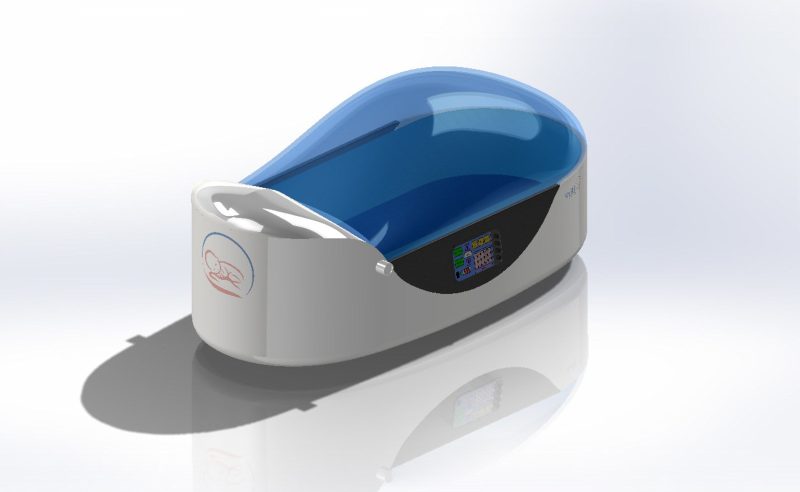New Neonatal Birth Unit is a World First to Improve Health Outcomes of Babies Born by C-Section
NICOSIA, Cyprus — NnBU Holdings Ltd (https://nnbu.io) announces it is set to raise €15million in an ICO for the world’s first neonatal birth unit, using blockchain technology, which will help deliver healthy outcomes for babies born by Caesarean-section (also known as C-section).
The conceptual design for the NnBU device (https://nnbu.io) has been completed and patented. The funds raised will be used to develop the machine and market it to hospitals and clinics internationally. This unique unit is designed to massage the torso of a C-section newborn and simulate the positive stresses of natural birth. As most C-section babies are born asleep, the NnBU device also focuses light on the baby’s fontanel in order to create a comfortable waking process for the newborn baby.
The inventors of the new medical device are working in partnership with the highly prestigious Fraunhofer Institute of Manufacturing, Engineering and Automation based in Stuttgart, Germany (https://www.ipa.fraunhofer.de/en.html) and medical device developers DMTpe (https://www.dmtpe.com/de/).
It is estimated that 40 million C-section deliveries take place globally each year. The key factor when looking at this market is the extraordinary growth in the number of C-section births in recent decades. Figures from the Organization for Economic Cooperation and Development (OECD) show that the average C-section rate in the 35-member countries was 19.8% in 2000 but had risen to 27.9% in 2015.
Crucially, numerous studies have shown that children born by C-section have a higher incidence of medical issues than those who are born naturally. The University of Edinburgh found that babies delivered by C-section have a 59% higher risk of obesity under the age of 5, and a 21% increased risk of asthma under the age of 12*.
Other research studies have also found links between C-sections and allergies**, type 1-diabetes and celiac disease***. C-sections are a risk factor for these medical issues because the positive stresses of a natural birth are necessary to stimulate a baby’s immune system to fully prepare them for life.
The NnBU baby care unit will incorporate three functions that will operate within the blockchain. The first will be a system to ensure that only suitably qualified medical staffers who have been trained in the use of the device will physically be able to operate it. The second will be the security feature which ensures that only qualified medical personnel will be able to carry out maintenance work on the device. Thirdly, the exact treatment received by each baby will be recorded, and subject to the permission of the parents and the laws on this sensitive subject, over time there will be an invaluable research tool relating to children who have had C-section deliveries.
The token pre-sale ICO from NnBU starts on Monday March 19 2018 and runs for six days, with the main sale starting on March 26 and running till April 25. The token is a passive income token which entitles the holders to a share of revenue from NnBU Holdings Limited. Assuming the target contribution of €15million is reached, token holders are expected to receive each year a figure equal to 12.5% of the Company’s sales. Uniquely for an ICO, all participants will be offered a legal contract enforceable in a court of law in addition to a smart contract. The minimum contribution for token holders will be 1 Ethereum (ETH).
Based on NnBU projections and assuming that these are achieved, the 12.5% of revenue share creates rates of return to investors in the level of highly profitable investment deals in conventional industries, similar to private equity. Further information can be found in the NnBU white paper on the company’s website (https://nnbu.io).
NnBU CEO Frédéric Vo Van said, “I myself was born through caesarean section. In my thirties I realised I was developing symptoms which studies have shown are connected to conditions typically experienced by a significant proportion of people born by C-section. This is a superb initiative that allows people to get involved with a far-reaching, long-sighted, technological innovation that is set to improve health outcomes for many children for several decades to come.”











